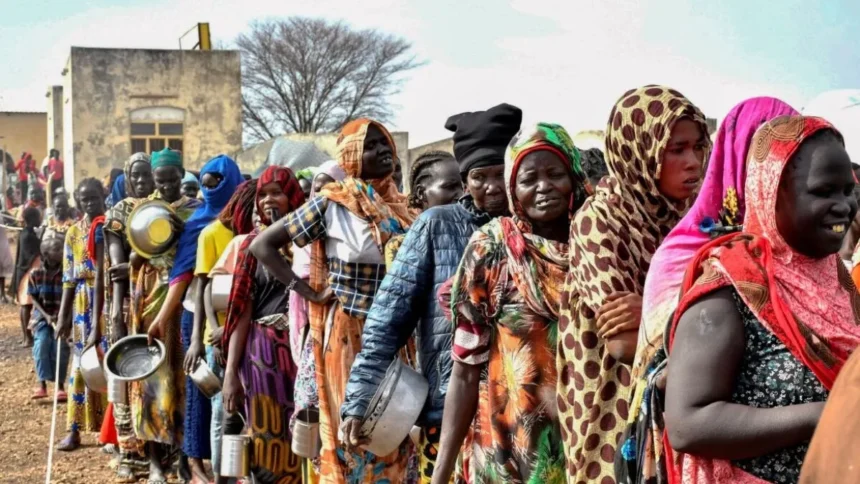The recent joint statement by the UN Security Council, expressing “alarm” at the escalating violence in war-torn Sudan, underscores the deepening humanitarian crisis that has gripped the nation. This concern comes in the wake of a disturbing report revealing that seven million people have been displaced by the ongoing conflict.
The Security Council’s strong condemnation of attacks on civilians is a stark acknowledgment of the severity of the situation. The conflict has not only resulted in the displacement of millions but has also taken a toll on areas that host significant populations of internally displaced persons, refugees, and asylum seekers. This alarming trend raises urgent questions about the safety and well-being of vulnerable communities caught in the crossfire.
The international community must grapple with the complexities of the Sudanese conflict and work towards viable solutions to alleviate the suffering of those affected. Humanitarian agencies face the daunting task of providing aid to the displaced populations while navigating the challenges posed by the conflict’s spread into areas with vulnerable communities.
One key aspect of the crisis is the impact on internally displaced persons (IDPs), refugees, and asylum seekers. These populations, already in precarious situations, now face heightened risks as the conflict encroaches on their places of refuge. The Security Council’s condemnation highlights the urgency of addressing the specific vulnerabilities of these groups and ensuring their protection.
About Violence In Sudan:
Efforts to address the root causes of the conflict are crucial for a sustainable resolution. Identifying and addressing the political, social, and economic factors fueling the violence is essential to preventing further displacement and fostering stability in the region. The international community, including the Security Council, must actively engage with all relevant stakeholders to promote dialogue and seek diplomatic solutions.
Furthermore, there is a pressing need for increased humanitarian assistance to meet the immediate needs of those affected. Humanitarian organizations operating in Sudan must be supported in their endeavors to provide essential services, including food, shelter, and medical care, to those displaced by the conflict.
The Security Council’s expression of alarm reflects the gravity of the situation in Sudan. The international community must unite to condemn the violence, protect vulnerable populations, and address the root causes of the conflict to pave the way for a sustainable and inclusive resolution. The plight of millions hangs in the balance, and concerted efforts are needed to bring about positive change in this war-torn nation.






